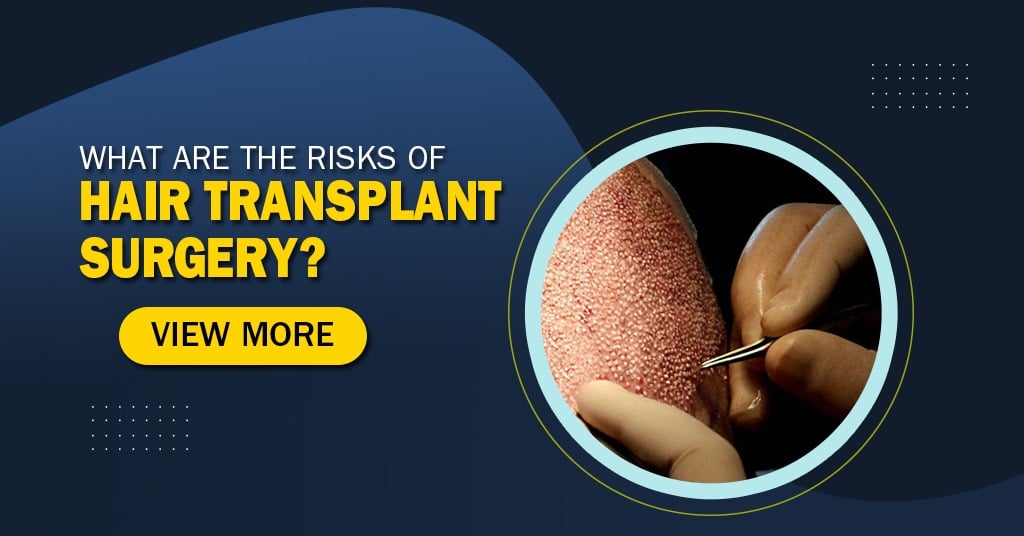A hair transplant is a relatively modern medical procedure used to treat baldness. Individuals are getting more interested in hair transplantation as a result of an increase in male and female pattern baldness, as well as technical improvements.
Although hair transplants are thought to be safe. You should be informed about the underlying side effects involved with hair transplant procedures. It is usually a good idea to seek the opinion of recognized medical professionals who are experienced in hair transplant treatments. This blog will help you in understanding some of the most common Side Effects of Hair Transplantation Surgery
- Bleeding:
Although bleeding during a hair transplant is unusual, it should not be overlooked. As a result of scalp pressure, some persons may develop bleeding. Bleeding may occur during the treatment, which can be stopped by applying tumescent fluid (an anesthetic technique used in cosmetic surgeries) with mild pressure.
- Pain:
Despite the fact that FUE is less painful, some patients may suffer some discomfort. Mild pain medicines can suffice for a few days. Pain is a transient adverse effect that disappears with time.
- Swelling:
People who have had hair transplants from the front side of the scalp can expect to have a slight swelling on the forehead and around the eyes for a few days after the procedure. Swelling around the eyes can be reduced with anti-edema medication and forehead tight band tape.
- Hair thinning:
The transplanted hair loses after 2 weeks due to the stress on the hair follicles. Hair normally regrows after 2-3 months. Thinner developing grafts will be replaced by thicker hair within a few months.
- Shock loss:
As a result of the operation, existing hair in the donor or recipient location may be stressed and fall out. This happens because the hair follicles lose blood supply while being relocated from one spot to another. It will recover its growth over time. Female hair transplant recipients are more likely to experience shock loss.
- Itching:
Throughout the healing phase, the client may suffer slight itching at the recipient and donor sites. Daily washing with a gentle shampoo can help to reduce this condition.
- Cysts:
Grafts grafted during the extraction or implantation process can later grow out and cause little acne-like blemishes. Prescribed Antimicrobial creams can aid in their control.
- Infections:
If suitable sterile techniques are not employed during the procedure, infections can emerge in uncommon conditions.
- Hiccups:
Hiccups, although very rare, should also be counted as a side-effect of hair transplant surgery. With just 5% of patients reporting this problem. If it lasts longer than a week, you may have difficulty eating or sleeping. Those who develop hiccups after hair transplant surgery are given medicines by doctors.
- Numbness:
Numbness at the recipient site is a common side effect of surgery. This numbness is only temporary and lasts a few weeks. In a few months, it returns to normal.
Conclusion
Despite these disadvantages of hair transplantation, this procedure is a relatively safer one and has a high success rate. We wish you the best of luck with your hair transplant and hope it goes smoothly! If you are seeking for a good hair transplant clinic in Varanasi with the most experienced hair transplant surgeons, Marvelous Aesthetics is the place to go. They employ some of the best hair transplant surgeons in the city.

